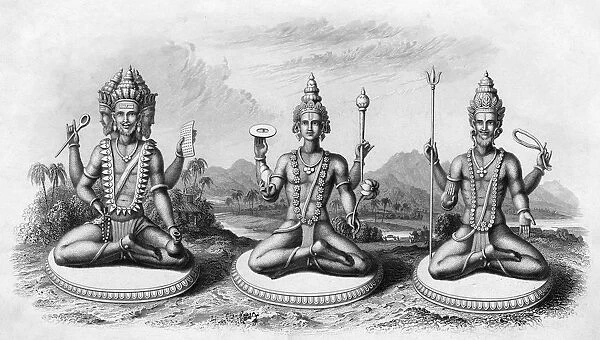The Peaceful Nature of Hinduism lies in its core principles—ahimsa (non-violence), dharma (righteousness), karma (cause and effect), and spiritual liberation—to promote peace, ethical living, and respect for diversity. These values provide timeless wisdom for personal and societal well-being in today’s world.
A Historical and Philosophical Overview of the Peaceful Nature of Hinduism
Historical Context: Non-Invasion Policy
Hinduism, one of the world’s oldest religions, has a rich history spanning over 4,000 years. Notably, Hindu kingdoms did not engage in military invasions or expansionist campaigns. This restraint is rooted in key principles of Hindu philosophy and cultural ethos.
Key Principles of Hinduism
- Ahimsa (Non-Violence): Ahimsa, the principle of non-violence, is central to Hindu thought. It advocates for respect and compassion for all living beings, which extends to the rejection of unnecessary aggression or harm. This principle underpins the ethical and moral conduct of individuals and communities.
- Dharma (Righteousness and Duty): Dharma signifies duty, righteousness, and moral law. It guides individuals in their actions, ensuring they adhere to ethical standards and societal responsibilities. For rulers and warriors, dharma dictates the fair and just conduct of governance and warfare, emphasizing protection over conquest.
- Karma (Cause and Effect): The doctrine of karma posits that every action has consequences. This belief in moral causation encourages individuals to act justly and ethically, fostering a culture of responsibility and integrity. The awareness of karmic repercussions deters actions that lead to suffering and conflict.
- Tolerance and Pluralism: Hinduism is inherently pluralistic, accepting diverse beliefs and practices. This inclusiveness promotes peaceful coexistence and respect for different cultures and religions, reducing the impetus for conflict and conquest.
- Spiritual Liberation (Moksha): The ultimate goal of Hindu life is moksha or liberation from the cycle of birth and death. This spiritual focus diverts attention from material pursuits and power struggles, encouraging a contemplative and peaceful way of life.

“Unveiling the Essence of Sanatan Dharma: A Journey into the Timeless Wisdom of Hinduism”
Application of Hindu Values in Modern Life
These principles of Hinduism offer valuable lessons for contemporary society. In a world often marked by conflict and division, the emphasis on non-violence, ethical conduct, and spiritual fulfillment provides a blueprint for personal and collective well-being.
- Promoting Peace: The principle of ahimsa can inspire modern peace movements and conflict resolution strategies, advocating for non-violent solutions to disputes at both interpersonal and international levels.
- Ethical Living: Dharma encourages individuals to live ethically and responsibly, fostering environments of trust and cooperation. It advocates business, politics, and everyday interactions, that adherence to righteousness leads to more equitable and just societies.
- Sustainability: The respect for all forms of life inherent in Hinduism aligns with contemporary environmentalism. Practices that honor the natural world and promote sustainability reflect the Hindu ethos of living harmoniously with nature.
- Cultural Diversity: The pluralistic nature of Hinduism can serve as a model for multicultural societies, promoting tolerance, mutual respect, and the celebration of diversity.
- Personal Growth: Focus on spiritual goals over material success encourages individuals to seek deeper meaning and purpose in life. This pursuit can lead to more fulfilling and content lives with inner peace and wisdom.

“The Journey Within Hinduism’s Call to Personal Growth and Responsibility”
Recommended Books on Hinduism
- “The Bhagavad Gita” by Eknath Easwaran: A foundational text offering insights into Hindu philosophy and spirituality.
- “Hinduism: A Beginner’s Guide” by Klaus K. Klostermaier: A comprehensive introduction to beliefs, practices, and history of Hinduism.
- “The Upanishads” translated by Eknath Easwaran: Essential scriptures that explore the core spiritual concepts of Hinduism.
- “Myth = Mithya: A Handbook of Hindu Mythology” by Devdutt Pattanaik: An engaging exploration of Hindu myths and their deeper meanings.
- “Autobiography of a Yogi” by Paramahansa Yogananda: A spiritual classic that provides a personal account of the author’s journey and insights into Hindu practices.

“Unlocking the Eternal Wisdom: 5 Timeless Truths of Sanatan Dharma for Spiritual Harmony and Growth”
Conclusion
Hinduism’s peaceful history and profound philosophical principles offer timeless wisdom for modern life. Embracing non-violence, ethical conduct, respect for diversity, and spiritual fulfillment, individuals and societies can navigate contemporary challenges with grace and integrity.
Discover more from Boundless Blogger
Subscribe to get the latest posts sent to your email.





